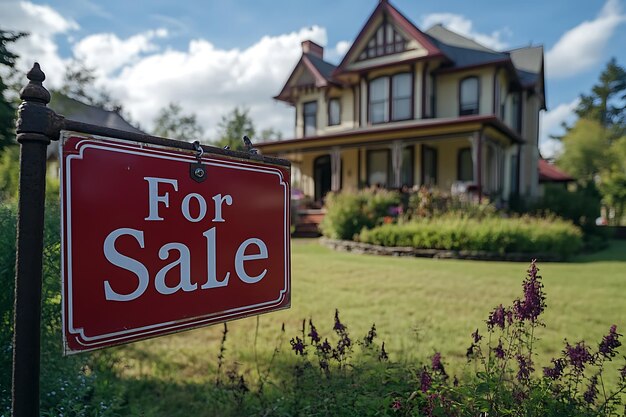Your Comprehensive Guide to Calculating Capital Gains Tax on Property Sales
Selling a property is often a significant financial decision, whether it's your family home, an investment, or a commercial property. An equally important part of this process is understanding the tax implications, particularly how capital gains tax (CGT) applies. This article aims to demystify the calculation of capital gains tax when selling a property and provide you with the knowledge you need to navigate this aspect of your financial affairs confidently.
Understanding Capital Gains Tax
What is Capital Gains Tax?
Capital gains tax is a tax levied on the profit you make from selling an asset, such as property, shares, or other investments. The key element here is the profit, which means CGT is only applicable if you sell the asset for more than you paid for it.
When Does Capital Gains Tax Apply to Property?
Not all property transactions will attract CGT. Here's when it typically applies:
- Investment properties: Properties bought with the intention of generating income, such as rental properties.
- Second homes and vacation properties: If you own multiple properties, the sale of any not deemed your primary residence can be subject to CGT.
- Commercial real estate: Any business properties sold at a gain.
Exemptions from Capital Gains Tax
Primary Residence Exemption:
In many countries, the most significant exemption is for your primary residence. If you live in the property as your main home, you might not have to pay CGT. However, certain conditions typically apply:
- You have lived in the property the entire time you've owned it.
- The property, including land, doesn't exceed a specific size.
Calculating Capital Gains on Property
The calculation of capital gains tax can vary depending on your country’s tax laws, but the fundamental principles are similar:
Determine the Selling Price: This is the price at which you sold your property.
Calculate the Cost Base: This includes the original purchase price and any expenses related to buying, holding, and selling the property, such as legal fees, stamp duty, and agent commissions.
Calculate the Capital Gain: Subtract the cost base from the selling price to determine your capital gain.
Applying Any Discounts/Exemptions: Some countries offer CGT discounts if you've held the property for a certain period.
Calculate the Tax Payable: Multiply the capital gain by your income tax rate or the CGT rate applicable in your jurisdiction.
Steps to Accurately Determine Capital Gains Tax
Step 1: Establish Your Cost Base
What to Include:
- Purchase Costs: Original price, legal fees, and stamp duty.
- Improvement Costs: Capital improvements like extensions or renovations (but not repairs).
- Selling Costs: Agent fees, marketing, and legal costs of selling.
Step 2: Calculate Your Capital Gain
Formula:
Example:
Suppose you bought an investment property for $300,000, spent $50,000 on renovations, and $10,000 in purchase and selling costs. You sell the property for $400,000. Your capital gain calculation will be:
- Cost Base: $300,000 + $50,000 + $10,000 = $360,000
- Selling Price: $400,000
- Capital Gain: $400,000 - $360,000 = $40,000
Step 3: Apply CGT Discounts
Long-term Ownership: If applicable, some regions offer a discount (e.g., 50%) if you’ve held the property for a year or more.
Other Exemptions: Check specific regional tax exemptions or reductions.
Example with Discount:
Continuing from the example, let's apply a 50% discount:
- Discounted Gain: $40,000 × 50% = $20,000
Step 4: Determine Tax Payability
Income Tax Rates or CGT Rates: Apply your tax bracket rate or the CGT rate specific to your region.
Example:
Assuming a tax rate of 25% on the discounted gain.
- Tax Payable: $20,000 × 25% = $5,000
Frequently Asked Questions
How does the primary residence exemption work?
The primary residence exemption typically allows homeowners to sell their principal home without paying CGT. However, rules vary, such as the necessity to live in the property continuously and restrictions on land size.
Can losses offset gains?
Yes, capital losses from other investments can offset capital gains, reducing the taxable amount. Ensure you keep thorough records to claim these offsets.
How to handle inherited properties?
Inherited properties often involve specific rules. Generally, the cost base is the property's market value at the date of the previous owner's death, but consult local laws for accuracy.
Summary of Capital Gains Tax on Property Sales
Here's a quick rundown to help you remember the key considerations when calculating CGT.
🔑 Key Points:
- Primary Residence: Often exempt from CGT.
- Cost Base: Includes all purchase and selling-related expenses.
- Exemptions/Discounts: Long-term ownership might offer CGT discounts.
- Record Keeping: Essential for proving cost base and any improvements.
📝 Quick Tips:
- 🚫 Check Exemptions: Always verify if your property qualifies for any exemptions or discounts.
- 📑 Keep Documentation: Thorough documentation aids in accurately calculating your CGT.
- 📊 Consult Professionals: Complex cases benefit from professional tax advice.
Understanding your capital gains tax obligations when selling property can save you from unexpected tax liabilities. With this guidance, you'll be better prepared to handle the financial implications and seek professional advice where necessary. By grasping how CGT works and carefully managing documentation, you can optimize your tax outcomes effectively.

Related Topics
- Do I Have To Pay Capital Gains Tax Immediately
- Do You Pay State Tax On Capital Gains
- Does Florida Have Capital Gains Tax
- Does Kamala Harris Want To Tax Unrealized Capital Gains
- How Can You Avoid Capital Gains Tax
- How Capital Gains Tax Works
- How Do I Calculate Capital Gains Tax
- How Do I Pay Capital Gains Tax
- How Do You Calculate Capital Gains Tax
- How Do You Figure Capital Gains Tax
